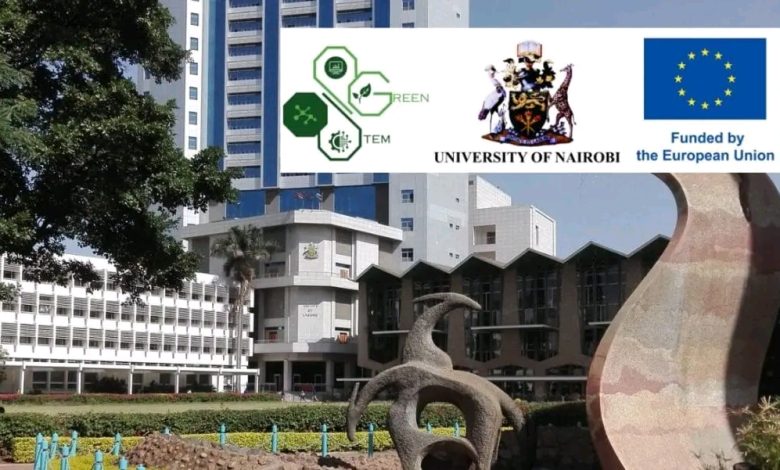African Union Scholarships: Promoting Regional Integration and Development

Bridging Educational Gaps Across Africa
The African Union (AU) Scholarships initiative is a pivotal force in promoting regional integration and sustainable development across the continent. Designed to empower African students through education, these scholarships provide opportunities for academic advancement and skills development in critical fields that contribute to Africa’s socio-economic growth.
Why Choose African Union Scholarships?
The AU Scholarships are distinguished by their focus on fostering regional collaboration and addressing educational disparities. Here are key reasons why African students should consider applying for these scholarships:
- Regional Integration: The scholarships aim to strengthen ties among African nations by supporting students from diverse backgrounds and fostering a sense of continental unity.
- Academic Excellence: Scholars have access to high-quality education at reputable institutions, gaining expertise in fields crucial to Africa’s development, such as agriculture, health sciences, engineering, and environmental studies.
- Financial Support: The scholarships cover tuition fees, accommodation, travel expenses, and other related costs, making higher education accessible to students facing financial challenges.
- Career Development: Scholars benefit from mentorship, networking opportunities, and career guidance programs that prepare them for leadership roles in their respective fields and communities.
Eligibility and Application Process
The AU Scholarships have specific eligibility criteria and a structured application process. Here’s a guide to help prospective applicants navigate the requirements:
Eligibility Criteria
- Citizenship: Applicants must be citizens of an African Union member state.
- Academic Performance: Candidates should demonstrate academic excellence and meet the admission requirements of the chosen program and institution.
- Field of Study: Scholarships are available for Master’s and PhD programs in priority areas identified by the AU Commission.
- Commitment to Development: Applicants must show a commitment to contributing to Africa’s development and addressing regional challenges through their studies and future career.
Application Requirements
- Academic Documents: Provide certified copies of academic transcripts, certificates, and diplomas.
- Research Proposal: For PhD applicants, submit a detailed research proposal outlining the study objectives, methodology, and potential impact.
- Letters of Recommendation: Obtain letters of recommendation from academic or professional referees who can attest to your qualifications and potential.
- Language Proficiency: Depending on the program and institution, proficiency in English, French, or other AU languages may be required. Language test scores (e.g., TOEFL, IELTS) may need to be submitted.
- Proof of Citizenship: Provide a copy of your passport or national identification document to verify African Union membership.
Application Process
- Research Programs: Explore the list of partner universities and programs supported by the AU Scholarships initiative.
- Prepare Application Materials: Gather all required documents and ensure they meet the specified criteria.
- Apply Online: Complete the online application form through the AU Scholarship portal or the partner university’s admission platform.
- Review and Submission: Double-check your application for accuracy and completeness before submitting it.
- Selection and Notification: Shortlisted candidates may be invited for interviews or additional assessments. Successful applicants will be notified of their scholarship award and provided with next steps.
Success Stories: Impacting Communities Across Africa
The AU Scholarships have empowered countless African students to pursue higher education, develop expertise in critical fields, and contribute to their communities’ development. These success stories underscore the scholarship program’s role in nurturing future leaders and innovators across the continent.
Research Programs: Nurturing Innovation and Discovery
Fueling Knowledge and Innovation
Research programs play a pivotal role in advancing knowledge, fostering innovation, and addressing global challenges. These programs are instrumental in shaping the future of various industries and disciplines by supporting groundbreaking research initiatives and cultivating a culture of scientific inquiry.
Importance of Research Programs
Research programs contribute significantly to the advancement of society by:
- Advancing Knowledge: Research programs push the boundaries of existing knowledge, uncovering new insights and discoveries that contribute to scientific, technological, and social progress.
- Fostering Innovation: By supporting innovative ideas and projects, research programs drive technological advancements, product development, and solutions to complex societal issues.
- Empowering Researchers: These programs provide researchers with resources, funding, and collaborative opportunities essential for conducting high-impact research and achieving academic excellence.
- Addressing Global Challenges: Research programs focus on tackling pressing global challenges such as climate change, health disparities, sustainable development, and economic inequality through evidence-based solutions.
Types of Research Programs
Research programs encompass a wide range of initiatives across various disciplines and sectors. Here are some common types:
1. Government-Funded Research Programs
Government-funded research programs are initiatives supported by national or regional governments to promote scientific research and technological innovation. These programs often focus on strategic priorities such as healthcare, energy, defense, and environmental sustainability.
2. University Research Programs
Universities play a central role in research through their dedicated research institutes, centers, and laboratories. These programs support faculty, graduate students, and postdoctoral researchers in conducting pioneering research across academic disciplines.
3. Corporate Research and Development (R&D) Programs
Corporate R&D programs are undertaken by private companies to drive innovation, enhance product development, and gain competitive advantage in the marketplace. These programs often focus on advancing technology, improving efficiency, and meeting consumer demands.
4. Nonprofit and Foundation-Led Research Initiatives
Nonprofit organizations and foundations sponsor research initiatives to address social, environmental, and health-related challenges. These programs aim to generate evidence-based solutions, influence public policy, and improve quality of life globally.
Benefits of Engaging in Research Programs
Engaging in research programs offers numerous benefits to researchers, institutions, and society as a whole:
- Knowledge Creation: Researchers contribute to the generation of new knowledge and theories that expand our understanding of the world.
- Career Development: Participation in research programs enhances researchers’ skills, expertise, and academic credentials, opening doors to career advancement and leadership opportunities.
- Innovation Ecosystem: Research programs foster collaboration among academia, industry, and government, creating an innovation ecosystem that drives economic growth and societal impact.
- Impactful Discoveries: Research outcomes can lead to breakthroughs in medicine, technology, agriculture, and other fields, benefiting communities and improving quality of life.
Conclusion
The African Union Scholarships represent a transformative opportunity for African students to advance their education, foster regional integration, and drive sustainable development. By investing in the continent’s human capital and promoting cross-border cooperation, the scholarships contribute to Africa’s collective progress and prosperity.
arewanahiya.com








